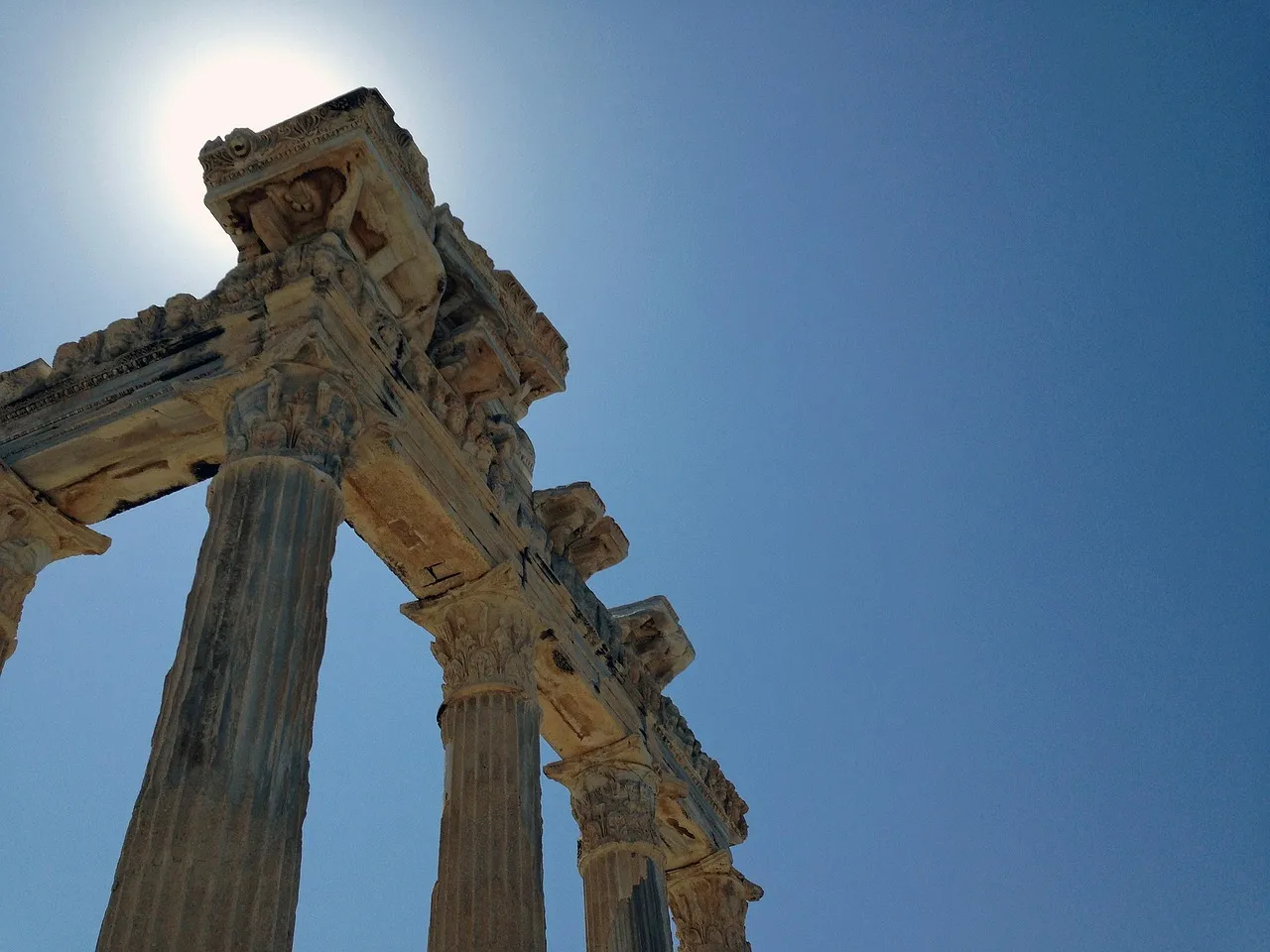Meaning and Significance
The name Augusto carries profound *meaning* and *significance*, stemming from its rich Latin origins.
Derived from the Latin word “augustus,” meaning “venerable” or “majestic,” the name reflects qualities of greatness, dignity, and power.
Throughout history, the name Augusto has been associated with emperors, leaders, and individuals of exceptional status.
Most notably, it was borne by *Augustus Caesar*, the first Roman emperor, who ushered in a period of peace and prosperity known as the Pax Romana.
This historical association further elevated the name’s significance, imbuing it with connotations of strength, wisdom, and leadership.
The Latin root “augustus” itself is believed to have evolved from the verb “augere,” meaning “to increase” or “to enlarge.”
This etymological link suggests that the name Augusto represents a sense of growth, expansion, and elevation.
Over time, the name Augustus has been adapted and adopted in various languages, including English, Spanish, Portuguese, and French.
While its popularity may have fluctuated throughout history, its fundamental meaning and connotations remain enduring.
The name Augusto carries a weighty historical significance, reflecting its origins in Roman nomenclature and its connection to one of Rome’s most influential emperors.
Meaning “venerable” or “revered,” Augusto derives from the Latin adjective *augustus*, which itself is linked to the verb *augēre* meaning “to increase.” This root speaks to a sense of greatness, elevation, and perhaps even divine right.
Augusto’s most prominent association is with Augustus Caesar (63 BCE – 14 CE), the first Roman emperor. His birth name was Octavian, but he adopted *Augustus* as his personal cognomen after solidifying his power.
By choosing this name, Augustus aimed to project an aura of majesty and authority, signaling a new era for Rome under his rule. The name resonated with the Roman people, who had witnessed his leadership during times of political and social upheaval.
The adoption of “Augustus” by Octavian had far-reaching consequences for language and culture. It became synonymous with imperial power and grandeur, influencing countless titles and epithets throughout history.
Beyond its political connotations, Augusto also gained personal significance for families who bore the name. Throughout centuries, it has represented qualities of respect, dignity, and perhaps even ambition.
Today, Augusto retains its historical weight while adapting to contemporary contexts. It continues to be a popular name, especially in Hispanic-speaking countries, where it carries echoes of both Roman history and Latin American identity.
Origin and Historical Context
The name Augustus holds significant historical weight, its origins intertwined with the rise and fall of one of history’s most influential empires.
The name emerged from the Roman world, specifically connected to the first Roman emperor, Octavian, who later adopted the name Augustus. This transformation marked a crucial moment in Roman history, signifying the transition from Republic to Empire.
Before becoming Augustus, Octavian was Julius Caesar’s grandnephew and heir, entrusted with leading Rome after Caesar’s assassination in 44 BCE. He skillfully navigated the turbulent political landscape, ultimately defeating his rivals and solidifying his power.
His adopted name, “Augustus,” derived from the Latin word “augere,” meaning “to increase” or “to enlarge.” It reflected Augustus’ ambitions to expand Rome’s power, influence, and prosperity. The name also carried connotations of reverence and divine approval, signifying his elevated status as the first Roman emperor.
Augustus’ reign, spanning from 27 BCE to 14 CE, ushered in an era of unprecedented peace and prosperity known as the Pax Romana. This period witnessed remarkable advancements in infrastructure, art, literature, and law. Augustus’ name became synonymous with this golden age of Roman civilization.
Beyond its political significance, “Augustus” also gained popularity as a given name within Roman society.
The name’s enduring legacy extends beyond ancient Rome. It has been adopted by individuals across cultures and generations, often evoking associations with power, nobility, and historical grandeur.
The name Augusto has deep historical roots, originating from the Latin word “Augustus,” meaning “venerable” or “great.” This word was initially used as a title for Roman emperors, first adopted by Octavian in 27 BC after he emerged victorious in the aftermath of Julius Caesar’s assassination.
Octavian later became known as Augustus, marking the beginning of the Roman Empire and a new era of peace and prosperity, known as the Pax Romana. The name Augustus, thus, became synonymous with power, authority, and triumph.
The name’s spread across cultures can be traced through several historical threads:
- Through the Roman Empire: As the Roman Empire expanded, the name Augustus traveled with it, spreading throughout Europe, North Africa, and parts of Asia.
- Via Latin influence on languages: Latin, the language of Rome, exerted a strong influence on many European languages, including Spanish, French, Italian, Portuguese, and Romanian. Consequently, variations of the name Augusto, such as Augustus (English), Agosto (Italian), Augusto (Spanish), and August (German) emerged in these languages.
- As a cultural reference: The name’s association with Roman history and the figure of Augustus made it a popular choice for parents seeking to imbue their children with qualities of leadership, grandeur, or historical significance.
Today, Augusto remains a relatively common name in many Latin-influenced cultures.
Notable People and Legacy
Augustus, born Gaius Octavius, was a pivotal figure in Roman history, marking the transition from Republic to Empire. His reign, spanning four decades (27 BC – 14 AD), ushered in an unprecedented period of peace and prosperity known as the Pax Romana. The name “Augustus” itself reflects his profound impact.
“Augustus” is derived from the Latin adjective “augustus,” meaning “venerable,” “magnificent,” or “great.” It was initially a title used to denote reverence, similar to how we might use “your Majesty” today. However, it became inextricably linked with Augustus through his political maneuvering and military successes.
After defeating his rival Mark Antony in the Battle of Actium (31 BC), Octavius accepted the title “Augustus,” bestowed upon him by the Roman Senate. This marked a symbolic shift in power, acknowledging his supreme authority as the first Roman Emperor.
The name “Augustus” quickly gained widespread recognition and admiration. It represented not just his personal greatness but also the flourishing state of Rome under his rule. During his reign, Rome experienced peace, economic growth, and a resurgence of cultural achievements.
Augustus’s legacy extends far beyond his personal accomplishments. He established many institutions and precedents that shaped the Roman Empire for centuries to come. He reorganized the army, reformed the tax system, and fostered a stable legal framework. His patronage of art and literature contributed significantly to the flourishing of Roman culture.
The name “Augustus” has resonated throughout history, signifying power, authority, and grandeur. It remains a potent symbol of Rome’s golden age and serves as a reminder of Augustus’s enduring impact on Western civilization.
The name Augusto carries a weighty legacy, rooted deeply in Roman history.
Its origins lie with *Augustus*, the first Roman emperor, born Gaius Octavius.
This individual, renowned for his military prowess and political acumen, ushered in an era of unprecedented peace and prosperity known as the _Pax Romana_.
The name “Augustus” itself is derived from the Latin word *augustus*, meaning “great,” “venerable,” or “magnificent,” a fitting tribute to his accomplishments and enduring impact.
Throughout history, Augusto has resonated across cultures and languages, evolving into variations like *Auguste* in French, *Augusto* in Spanish and Italian, and *奥古斯都* (Āgùsīdū) in Mandarin Chinese.
While the name’s popularity may have waxed and waned over time, its association with greatness and power has endured.
Today, Augusto remains a relatively uncommon but distinctive choice for a name, often bestowed upon individuals who carry a certain gravitas or ambition.
Its presence in contemporary society serves as a reminder of the enduring legacy of ancient Rome and the timeless allure of historical names that evoke strength and nobility.
- Best Dun & Bradstreet (DNB) Alternatives for 2025 - April 26, 2025
- Best Seamless.ai Alternatives for 2025 - April 26, 2025
- Best Leadfeeder Alternatives for 2025 - April 25, 2025


